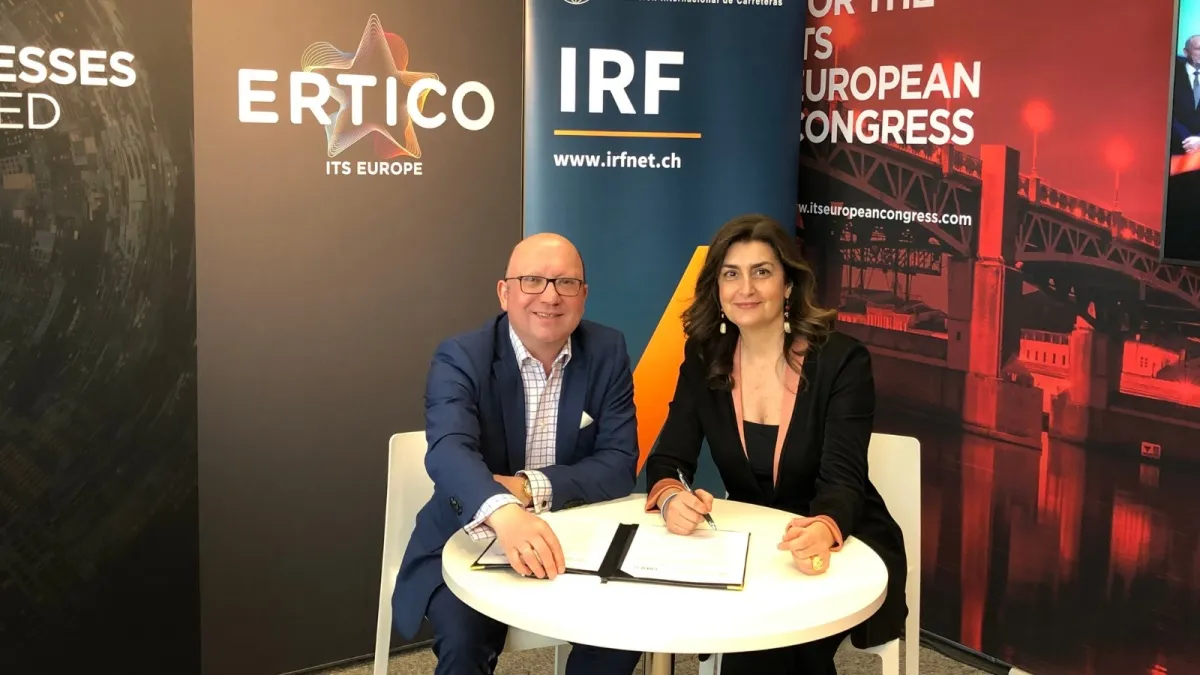
Ertico – ITS Europe and the International Road Federation (IRF Geneva) have built on the strategic partnership they signed earlier this year, to offer concrete steps towards safer, more efficient and more sustainable transport and mobility.
The two European transport trade bodies' Memorandum of Understanding (MoU) will see them focus on complementing each other’s expertise and initiatives in the field of smart mobility by organising joint activities while providing a platform for capacity building on sustainable and efficient transport.
Both signed the Cop27 open letter emphasising the importance of digitalisation and ITS to enhance efficiency improvements in transportation in order to reach climate goals.
Susanna Zammataro, director general at IRF and Anouar Benazzouz, IRF president, were invited to Ertico's Brussels office to discuss future priorities, one of which will be a training package to target public authorities and the transport industry focusing on "ITS as a key for a safe and sustainable future".
“This new cooperation is the result of Ertico’s ambition to connect the dots beyond its traditional focus," says Ertico CEO Joost Vantomme.
"Transport and mobility has stepped out of the vertical thinking and has become a true horizontal societal layer. Both Ertico and IRF serve a wide range of member organisations in the public and private sectors of the road and transport industry. This newly-minted cooperation provides a platform for the next generation of transport leaders."
“The challenges the transport sector faces demand us a higher level of coordination and collaboration than what we have staged so far," says Benazzouz.
"Hence our renewed commitment to working closely with other sisters organisations in the sector. Technology is and will be central in the solutions we need to cater for the sector."
Zammataro agreed: “Both public and private sector are eager to develop quickly effective and pragmatic solutions and do share the understanding of the importance of doing this together and the will to do so. Bringing IRF’s members' and Ertico’s members' expertise together through this initiative means ensuring the sector moves from will to action and does so in a timeframe that reflects the urgency to which we are all confronted."
Vantomme said the agreement will "foster greater synergies and enable the two organisations to share the knowledge we have both gained in our mission as thought leaders" while also promoting "the roll-out of ITS and sustainable mobility solutions”.










